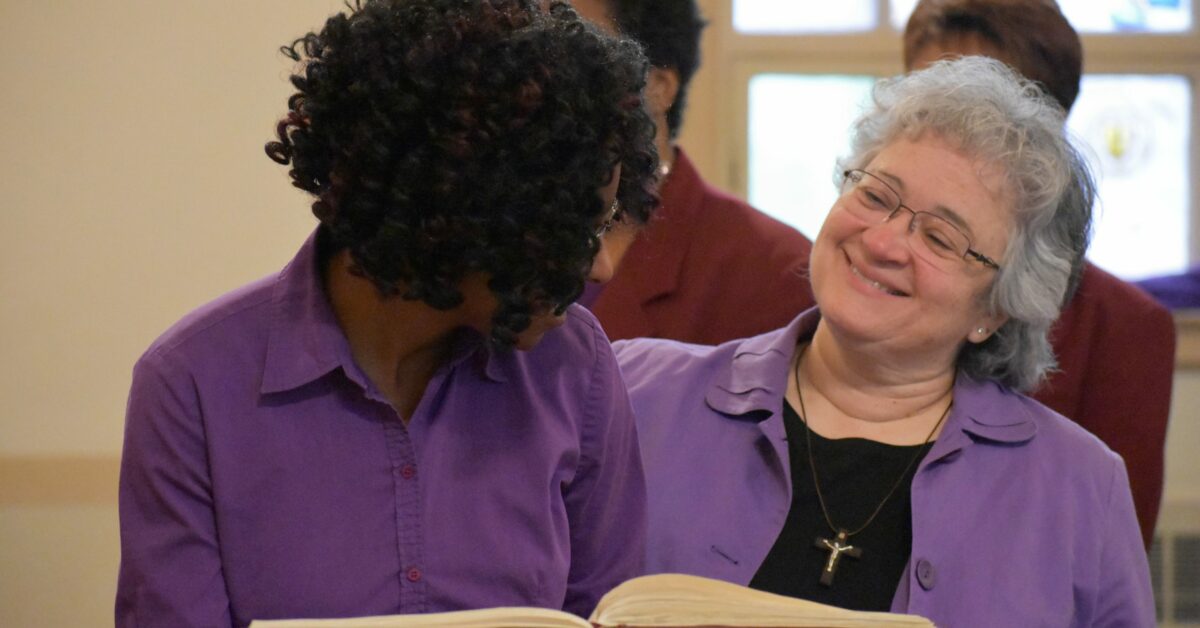An Apprenticeship in Faith
As we saw in our last post, Diana Macalintal in Your Parish is the Curriculum explores the optimal ways in which the Roman Catholic catechumenate—Rite of Christian Initiation of Adults (RCIA)—functions. That entails the Christian community serving as God’s premier agent of fostering conversion and incorporating new Christians into the community’s life together. In chapters 1 and 2 she expands on that theme by exploring how faith formation matters to the entire community (chapter 1) and how the RCIA is the responsibility of the entire parish.
One of the challenges for the Roman Catholic catechumenate, and a potential challenge for faith formation among Lutherans, is that it will be seen as only “for” the catechumens and that the primary agent of formation is the RCIA group, the RCIA leaders, or even just the pastor. Macalintal seeks to debunk this notion by arguing compellingly that faith formation matters for all Christians because baptism is at the center of the catechumenate and baptism matters to all Christians. Baptism changes whose we are, who we are, and how we live. As a result of baptism all Christians are in mission. In other words, we are called upon daily to discern how we are to live in response to our baptism. She encourages asking the following questions out of our baptismal identity: “How am I responding to God’s gift and living out the mission this gift gives me? How can we strengthen our faith as a response to God’s call? And how do we teach others to respond by faith and take on the mission of Christ in the world?” (Your Parish is the Curriculum, 18)
Formation to live out this baptismal identity comes not primarily through “head” knowledge but through experiential knowledge. As she says, “We learn by doing, especially by praying” (18). This experiential learning comes through participation in the community of Christ, especially through the assembly’s gathering for worship. Through the corporate liturgical experience catechumens and neophytes are drawn into life with Christ. They receive the eyes needed to see the world as God sees it and perceive the Triune God’s story as being brought to completion for and in His creation. Everything that the church does flows from its corporate worship and catechizes everyone in the body of Christ. As Macalintal indicates, “Catechesis is helping believers open their hearts to encounter the living Christ active in the church” (21). When baptism matters in this way then the baptismal community—the parish—matters, because it immerses all into Christian life within the community. In this way the catechumenate is an apprenticeship in faith and in the life of faith led by the parish that responds to God’s living voice; encounters Christ’s mercy among those who receive and offer forgiveness; turns to the Father in prayer; walks with and serves those in need (27).
Since faith formation is such an apprenticeship, faith formation IS the responsibility of the entire parish, as Macalintal argues in chapter 2. This doesn’t require any special expertise or involvement on the part of members of the parish. They just do what they normally do as Christians, but recognize that they are witnessing at all times to the catechumens and neophytes. They are asked to give attention to how they live as Christians so as to best model a life of faith that flows from the gospel. In this sense, as Macalntal notes, the catechumenate is not a program, but a family. Catechumens are becoming part of this family. The church, by conducting a faith formation apprenticeship, is incorporating them into this way of conversion and faith. They learn to love Jesus through the love of Jesus’ family and learn to love Jesus’ family from the love of Jesus which they experience. Through the congregation God is drawing the catechumens into a community of love and forgiveness (38). In a traditional Roman RCIA there are many who can and do take on particular, intentional roles in faith formation: Pastors, a Catechumenate Director, Ambassadors of Welcome, Coordinator of Sponsors, Sponsors/Mentors, Catechists, Meal Coordinators, and others. But ultimately all of these people serve to connect catechumens to the people of God. That is the primary encounter through which they are formed for Christian life. The entire Christian (Lutheran!) parish apprentices catechumens, the newly baptized and confirmed, and one another into being disciples of the Lord Jesus.
